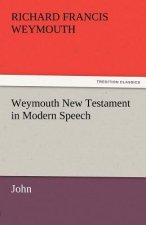
Kod: 01915860
Afanasii Shchapov and the Significance of Religious Dissent in Imperial Russia, 1848-70
Autor Thomas Marsden
In the 1650s and 1660s, the head of the Russian Orthodox Church, Patriarch Nikon, carried out a series of reforms which were rejected by a large number of the faithful. The split that resulted, the Great Schism or raskol, led a la ... więcej
- Język:
 Angielski
Angielski - Oprawa: Miękka
- Liczba stron: 104
Wydawca: ibidem-Verlag, Jessica Haunschild u Christian Schon, 2020
- Więcej informacji o książce

Zobacz książki o podobnej tematyce
-

Oresama Teacher, Vol. 13
11.06 € -4 % -

Kamfu mir helfen
14.69 € -9 % -

Allradfahrzeuge
12.88 € -15 % -

Nachsommer
73.08 € -1 % -

Weymouth New Testament in Modern Speech, John
19.02 € -

Bacteria
79.52 € -

Biologischer Pflanzenschutz im Gewächshaus
52.95 € -9 %
Bon podarunkowy: Radość gwarantowana
- Podaruj bon o dowolnej wartości, a my się zajmiemy resztą.
- Bon podarunkowy dotyczy całej naszej oferty.
- Możesz wydrukować elektroniczny bon z e-maila a następnie przekazać go obdarowanemu.
- Ważność bonu wynosi 12 miesięcy od daty wystawienia.
Więcej informacji o Afanasii Shchapov and the Significance of Religious Dissent in Imperial Russia, 1848-70
Za ten zakup dostaniesz 104 punkty
 Opis
Opis
In the 1650s and 1660s, the head of the Russian Orthodox Church, Patriarch Nikon, carried out a series of reforms which were rejected by a large number of the faithful. The split that resulted, the Great Schism or raskol, led a large proportion of the Russian population to become completely isolated from the official church. Known as raskolniki, they were seen as stubborn opponents of both church and government and were fiercely persecuted. Two centuries later amidst peasant protests, revolutionary conspiracies and government paranoia, Russias religious dissenters were again at the forefront of national concerns. Russias autocratic rulers, while equating Orthodoxy with political loyalty, saw the heterodox as a threat to internal security. At the same time, Russian revolutionaries began to look to the people as an instrument of political change. Where all too often loyalty to the Tsar was the defining feature of the peasants, the raskolniki with their persecuted history and stubborn resistance seemed to promise a well of opposition from which the radicals could draw. The historian and radical thinker Afanasii Shchapov (1830-1876) championed religious dissent as a politically democratic movement. More than anyone else he defined the relationship between political and religious dissent that was to persist until the revolution of 1917. In examining Shchapovs works together with a wide range of printed and archival sources, Thomas Marsden reveals that the raskolniki were central to the most important questions of mid-nineteenth century Russian society - those of revolution, nationality, and progress.
 Szczegóły książki
Szczegóły książki
41.37 €
- Pełny tytuł: Afanasii Shchapov and the Significance of Religious Dissent in Imperial Russia, 1848-70
- Autor: Thomas Marsden
- Język:
 Angielski
Angielski - Oprawa: Miękka
- Liczba stron: 104
- EAN: 9783898218627
- ISBN: 3898218627
- ID: 01915860
- Wydawca: ibidem-Verlag, Jessica Haunschild u Christian Schon
- Waga: 1000 g
- Wymiary: 210 × 148 × 15 mm
- Data wydania: 19. November 2020
Ulubione w innej kategorii
-

The Book of Bill
23.75 € -14 % -

Gravity Falls Journal 3
16.40 € -21 % -

Berserk Deluxe Volume 1
44.39 € -11 % -

Pumpkin Spice Cafe
11.77 € -17 % -

Berserk Deluxe Volume 2
52.24 € -

White Nights
3.51 € -23 % -

It ends with us
8.75 € -18 % -

48 Laws Of Power
18.01 € -9 % -

A Little Life
17.51 € -

Atomic Habits
15.90 € -14 % -

Berserk Deluxe Volume 3
48.82 € -2 % -

Gilmore Girls: The Official Advent Calendar
28.88 € -25 % -

Surrounded by Idiots
10.46 € -29 % -

Jujutsu Kaisen, Vol. 23
9.76 € -26 % -

The 48 Laws of Power
24.56 € -5 % -

The Official Stardew Valley Cookbook
22.34 € -22 % -

Berserk Deluxe Volume 4
45.19 € -10 % -

A Good Girl's Guide to Murder
8.14 € -25 % -

Iron Flame
16.30 € -17 % -

A Curse For True Love
10.36 € -12 % -

Berserk Deluxe Volume 5
50.43 € -

It Starts with Us
8.95 € -16 % -

Twisted Love
9.76 € -24 % -

Powerless
10.46 € -18 % -

Twisted Hate
10.16 € -20 % -

The Husky and His White Cat Shizun: Erha He Ta de Bai Mao Shizun (Novel) Vol. 6
16.20 € -19 % -

Court of Mist and Fury
9.35 € -21 % -

Twisted Lies
9.76 € -24 % -

English File: Intermediate: Student's Book with Online Practice
25.56 € -7 % -

Reckless
10.26 € -20 % -

Psychology of Money
18.92 € -3 % -

Chainsaw Man, Vol. 16
10.76 € -18 % -

Berserk Deluxe Volume 6
51.13 € -

Everything I Know About Love
10.36 € -29 % -

Twisted Games
9.76 € -17 % -

Court of Thorns and Roses Paperback Box Set (5 books)
50.03 € -20 % -

Vagabond (VIZBIG Edition), Vol. 1
24.56 € -

English File Upper Intermediate Student's Book with Student Resource Centre Pack (4th)
25.56 € -7 % -

Gravity Falls: Lost Legends
17.81 € -15 % -

Court of Thorns and Roses
9.25 € -19 % -

Headway: Elementary: Student's Book with Online Practice
24.96 € -7 % -

A Court of Wings and Ruin
10.76 € -6 % -

The Courage To Be Disliked
10.96 € -14 % -

Headway: Elementary: Workbook Without Key
13.98 € -

A Court of Silver Flames
10.16 € -20 % -

Meow
20.73 € -

Once Upon A Broken Heart
10.66 € -17 % -

SOLO LEVELING V09
17.51 € -12 % -

Fourth Wing
10.26 € -28 %
Osobní odběr Bratislava a 2642 dalších
Copyright ©2008-24 najlacnejsie-knihy.sk Wszelkie prawa zastrzeżonePrywatnieCookies



 Vrácení do měsíce
Vrácení do měsíce Zdarma od 49.99 €
Zdarma od 49.99 € 02/210 210 99 (8-15.30h)
02/210 210 99 (8-15.30h)